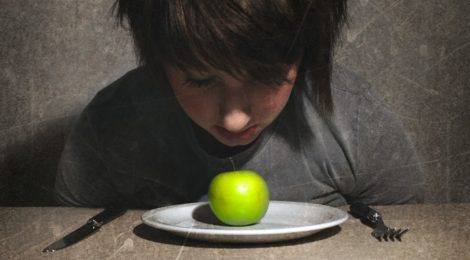
When Healthy Eating Turns Unhealthy
Orthorexia nervosa is an eating disorder characterized by a persistent preoccupation with the ‘quality’ of food, resulting in severely restricted eating and a strong need to maintain the ‘perfect’ diet. The term was first coined in 1996 by physician Steven Bratman. Unlike anorexia nervosa, restriction is not a motivating factor, but is a consequence of an obsession with the perceived health effects of different foods.
Aside from the physical health problems, including low body-mass index, malnutrition and heart complications, orthorexia also takes a toll on one’s mental health. Orthorexic individuals feel good when maintaining strict diets, but experience excessive guilt when they fail. This, coupled with a repeated avoidance of social gatherings for fear of not being able to adhere to their strict diets, may lead to feelings of isolation, depression and anxiety. As well, orthorexia is often linked with obsessive-compulsive disorder. Sam (pseudonym) shared one such story on Reddit:
“I think my best friend’s sister has [orthorexia], though I never had a name for it other than “OCD.” She buys groceries, brings them home and goes through each item in excruciating detail. For a few small bags, it may literally take 12 hours and it’s entirely possible that she will not eat anything she purchased…. She usually can’t cook or eat because of [her] obsession. It just takes too long or everything is “contaminated” or “spoiled.” There are a few expensive organic restaurants she trusts, so she usually only eats one meal a day from one of them…To look at her, you’d think she’s anorexic, but she’s not opposed to eating much more if she didn’t have to go to such pains to make her food “healthy” first.”

Jennifer Mills, an associate professor at York University who studies body image and eating disorders, spoke with the Trauma and Mental Health Report about how a person may develop orthorexia:
“There are probably genetic factors that put an individual at risk of generalized obsessive-compulsive tendencies. When those latch onto weight loss and calorically restrictive eating, the person might develop anorexia nervosa. When they latch onto concerns around germs, for example, the person might develop OCD regarding contamination fears. And when they latch onto healthy eating and the fear that certain types of food are toxic or dangerous, the person might develop signs of orthorexia nervosa.”
When looking at personal accounts of orthorexic individuals, an intergenerational pattern emerges. This was true for Roxy (pseudonym), who shared on Reddit:
“My father has suffered from orthorexia his whole life, always fasting and only eating fruit. It looks like I [got] it from him.”
Taylor (pseudonym) commented that their disordered diet likely resulted from an inability to learn healthy eating behaviour from caregivers, who suffered from eating disorders themselves.
Despite mounting scientific evidence, not all researchers are convinced that orthorexia is a distinct condition and it is not yet formally recognized as an eating disorder by the American Psychiatric Association. In the absence of a proper diagnostic guide, many people, especially those who follow special diets like veganism and zero-carb, have criticized Bratman’s definition of orthorexia, saying it pathologizes normal human behaviour.

Mills explained the difference between healthy and disordered eating:
“There will always be trends that come and go…I would point to the vast majority of findings from good scientific studies that show that moderation is key and that restrictive diets, like no carb or very low-fat diets, do more harm to our health than good in the longer term or when taken to the extreme. Where experts all agree is that when people feel like they are spending too much time thinking about or preparing food, something is not working. Or when people are avoiding eating in social situations, which is commonly expressed by individuals with eating disorders, something is not working. Just as it is important not to pathologize healthy eating, it is important not to normalize extreme dieting or disordered eating.”
As this Medium article puts it: “Orthorexia nervosa has nothing to do with the restrictions of the diet itself. It has to do with the individual’s behaviour while adhering to the particular diet.”
In order to correctly identify orthorexia and distinguish it from normal dieting, it is important to remember the four D’s of abnormality as recognized by many in the psychiatric community: deviance, dysfunction, distress, and danger.
– Rupkatha Basu, Contributing Writer
Image Credits:
Feature: Wikimedia Commons at Wikimedia, Creative Commons
First: Darren Tunnicliff at Flickr, Creative Commons
Second: Mary Lock at Flickr, Creative Commons



